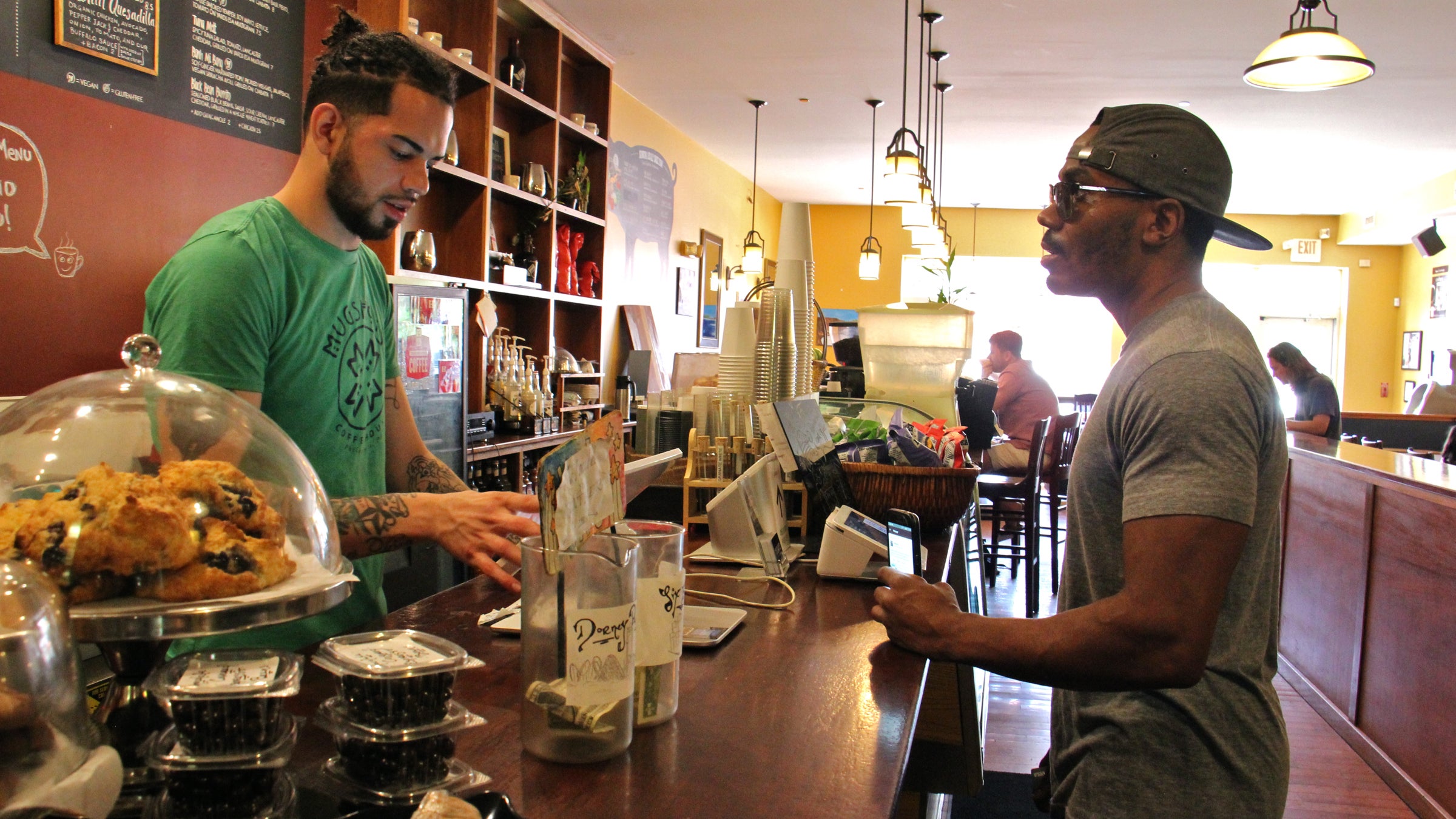The small-business case for the Philly beverage tax

José Laboy (left) takes a customer's order at Mugshots café on Fairmount Avenue. (Emma Lee/WHYY)
The soda industry has worked hard to create the perception that the Philadelphia Beverage Tax is bad for small business owners like myself, so sometimes customers and friends ask me why I support this tax on sweetened beverages. The answer is a simple one: It’s good for business.
Cafes have very thin margins, and they thrive only in strong neighborhoods with a steady supply of residents and commuters who come in during the workday and the weekends. So, while it’s true that taxes are hard on businesses with thin margins, many of the problems the tax revenues are addressing are far bigger problems for my business than a tax on sweetened beverages.Twenty-six percent of Philadelphians live at or below the poverty line; the highest number among the United States’ largest cities. Over 15 percent of our residents are impacted by diabetes. Eighty percent of our students at traditional public and charter schools score in the lowest performance tiers. Our libraries and rec centers are crumbling from lack of investment, and too many of our parks have become centers for criminal activity. These conditions are not conducive to neighborhood development or economic growth in our city.
Large corporations are not going to want to open offices in a city with a failing school system. Healthy businesses thrive in healthy communities. Small businesses are not going to open on the same street where there are epicenters for criminal activity. Parents are not going to want to raise their children in a city that lacks the amenities for them to be successful both academically and socially; these have all been proven to be true.
The Philadelphia Beverage Tax will help address all of the aforementioned challenges. High-quality, affordable pre-K will put our most at-risk students on the path for success. Students who attend a high-quality pre-K program are more likely to read at grade level. They are also less likely to need special education or an individual education plan; which will save the district millions and allow it to allocate funds across wider areas of need.
Community schools streamline access to already available services which will help address factors hindering students’ ability to learn while allowing our teachers to focus on teaching. Currently, the Free Library system and the Department of Parks and Recreation are the largest providers of after-school programs; students who attend these have higher school attendance rates and are more likely to graduate on time. Investing in our public spaces will also make our neighborhoods safer and more likely to support small businesses like my own.
Businesses need customers; you don’t need an advanced degree in economics to figure that out. All that the city will be able to provide residents through the revenue raised by the Philadelphia Beverage Tax will ensure that I have the steady supply of customers I need. I’ve made a commitment to Philadelphia as a business owner and leader because I love this city and want to contribute to its growth. I also care deeply about the health and well-being of my fellow residents and the community I serve. So, I’m not viewing this as a tax but rather an investment that will ensure I have healthier customers drinking my beverages for generations to come.
—
Jill Fink is the owner of Mugshots Coffeehouse and the executive director of urban agriculture nonprofit Food Moxie.
WHYY is your source for fact-based, in-depth journalism and information. As a nonprofit organization, we rely on financial support from readers like you. Please give today.




